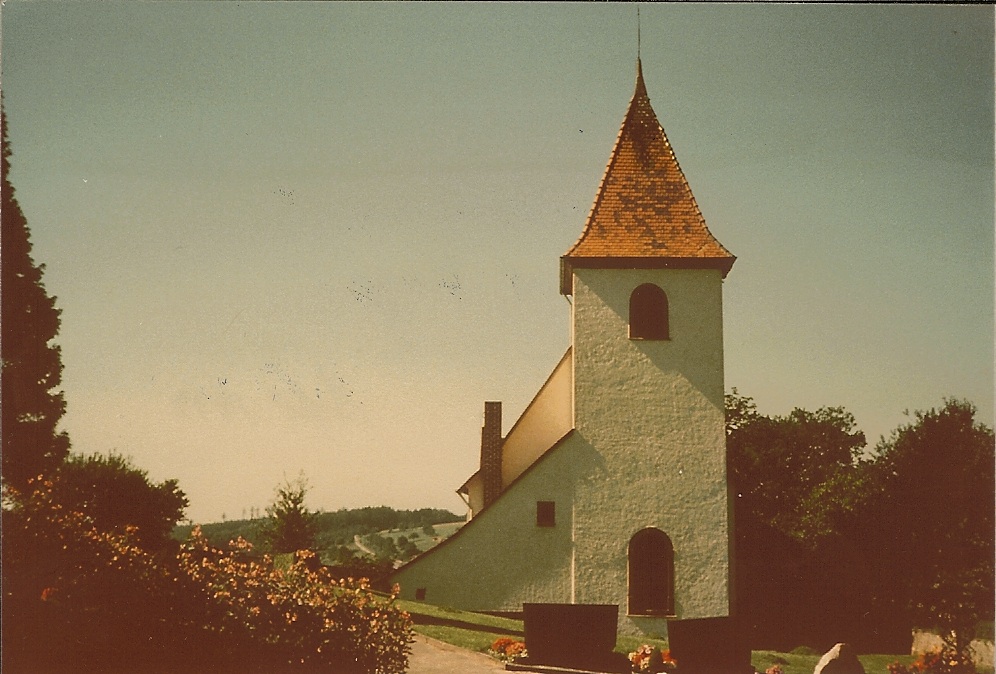
I’ve been working on “A Hacker-Hocker Family” recently and decided I needed to add flavor to the narrative. I wanted to provide some social and historical context to help bring my ancestors to life as real people.
Since most of my ancestors were German and continued their customs and traditions, bringing their way of life to the New World when they immigrated, I needed to understand life in a German village. Unfortunately, while there are scads of information about historical events and personages, I wasn’t able to find much on the day-to-day lives of the common people—people like my ancestors.
Until, that is, I found Teva Scheer’s book Our Daily Bread: German Village Life, 1500-1850 (affiliate link). The author created a fictitious village called Hochfeld am Neckar in southwestern Germany and tells the story of village life through the events in the life of her main character, Johann Adam Mann, his family, ancestors, and neighbors.
The book sets the groundwork in the first three chapters, covering peasant status, religion, and war. It, then, expands to cover family, “the daily aspects of villagers’ lives: their families, livelihoods, inheritance customs, self-governance practices, and village institutions such as the school.” And finally, the author wrote about the immigration experience, both leaving Germany and settling in America.
Although as the author claims, “this is not an academic work,” she does provide extensive footnotes throughout the content and a bibliography at the end. While most of the events she wrote about occur in the 1800s, they are still applicable to earlier generations. Nor does she ignore earlier historical events that shaped the villagers lives—the Reformation, the 30 Years War.
The book was both informative and easy-to-read. I bought the Kindle ebook, but it is available in paperback, as well. I would recommend it to any genealogist with German ancestors.
Buy Our Daily Bread: German Village Life, 1500-1850
This is an affiliate link. If you purchase the book by clicking this link, Amazon will pay me a little money. It won’t affect the price you pay.
 Looking for some of the sources used in Our Daily Bread, German Village Life, 1500-1850, I found the Reviews in History website. While books reviews may not be an ideal source, I was able to pick up several nuggets of information from reviews of books by Sheilagh Ogilvie. Obviously, the book itself would be a better source—or the original documents referenced in the work—but when you can’t get the book (or can’t afford it; some of these textbooks are expensive!)—a discussion of the content may provide some valuable information you might otherwise not have found. For instance, I learned that “Women could work in guilded occupations only if they were the wife of a master or if they were a guild master’s widow, and had inherited his guild licence.”1 This provided a possible source of income for the widow of my ancestor—a shoemaker in his village—and explained one reason why she might have been able to wait several years to remarry, even with a household of young children.
Looking for some of the sources used in Our Daily Bread, German Village Life, 1500-1850, I found the Reviews in History website. While books reviews may not be an ideal source, I was able to pick up several nuggets of information from reviews of books by Sheilagh Ogilvie. Obviously, the book itself would be a better source—or the original documents referenced in the work—but when you can’t get the book (or can’t afford it; some of these textbooks are expensive!)—a discussion of the content may provide some valuable information you might otherwise not have found. For instance, I learned that “Women could work in guilded occupations only if they were the wife of a master or if they were a guild master’s widow, and had inherited his guild licence.”1 This provided a possible source of income for the widow of my ancestor—a shoemaker in his village—and explained one reason why she might have been able to wait several years to remarry, even with a household of young children.


